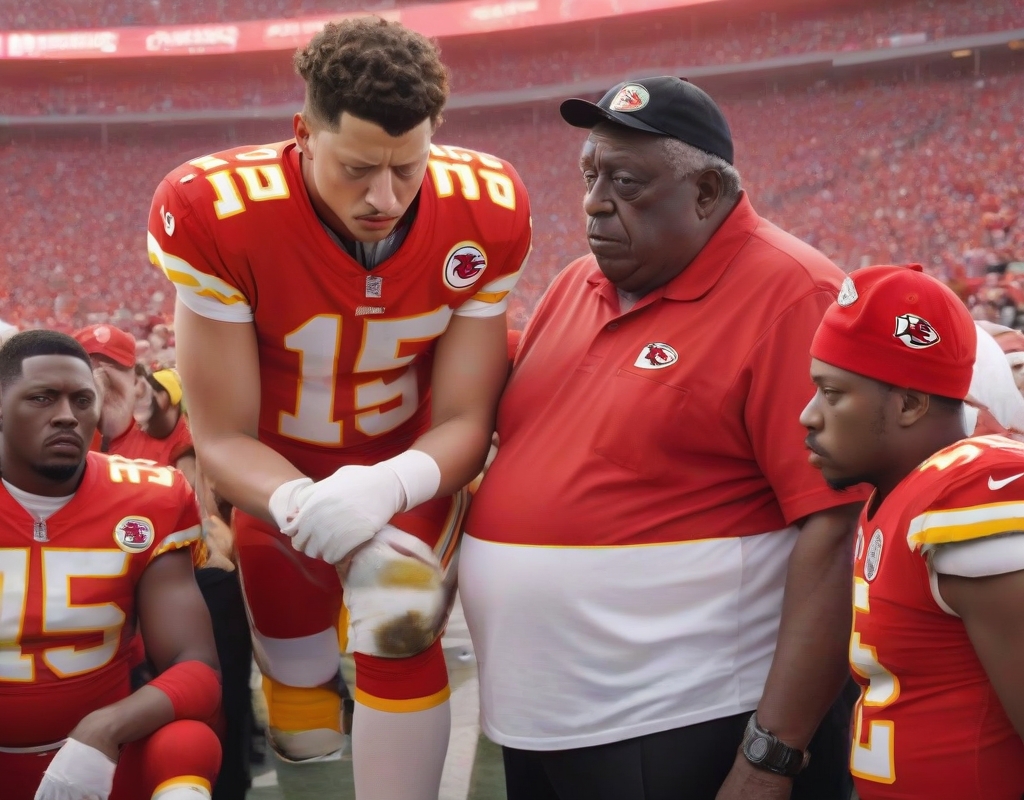In the world of sports where the glare of the spotlight is relentless, the intersection of fame, family, and the law often produces complex narratives. This was unmistakably illustrated in an incident involving Patrick Mahomes Sr., the father of Patrick Mahomes Jr., a prominent NFL quarterback for the Kansas City Chiefs. An episode that unfolded in June, caught on a police video during a routine traffic stop, has brought unexpected attention to Mahomes Sr., offering a nuanced glimpse into the personal challenges encountered by the relatives of high-profile athletes.
**Incident Details: A Tense Exchange**
During the stop for what appeared to be a normal traffic violation, the police video revealed a palpable tension. Mahomes Sr., understandably agitated, was depicted discussing with officers his concerns over the repercussions this stop might have, especially on his son’s career and the Kansas City Chiefs’ ongoing season. He was captured expressing fears about an arrest’s potential to “f*** with” his son’s profession and the team’s aspirations for a Super Bowl victory.
The situation quickly burgeoned beyond a simple traffic infringement, spawning a wealth of reactions and a media frenzy that scrutinized every angle of the exchange. The narrative that unfolded has been complex, highlighting the deep concern of a father possibly overshadowed by the identity of his more famous son.
**Mixed Public and Media Reactions**
The public and media reaction has been a mixed basket of criticism, empathy, and fervent discussion. While some critiques targeted Mahomes Sr.’s attempt to possibly use his son’s fame as leverage during the incident, others empathized, perceiving his actions as those of a father caught in a stressful moment.
The broader discourse has opened up significant topics about the scrutiny public figures and their families face in otherwise everyday encounters, transforming minor personal events into extensive public debates. The Mahomes incident underlines an unstated societal truth: families of public figures often navigate a world where their private moments can quickly spiral into public spectacles.
**Family Dynamics and Team Response**
The Mahomes family, often described as tightly-knit and supportive, undeniably felt the ripples from this incident. Patrick Mahomes Jr. has frequently mentioned the integral support his family provides in both his personal life and professional endeavors. This event, despite its potential negative press, highlights the vulnerability and normal human emotions faced by families behind public figures.
On the professional front, the Kansas City Chiefs have taken a reserved stance, not publicly addressing the incident, likely to avoid any distractions affecting team morale or focus. This approach speaks volumes about the team’s strategy in managing players’ off-field issues, focusing primarily on maintaining a stable and undistracted locker room environment.
**Reflections on Legacy, Media, and Privacy**
The narrative surrounding the stop has also pivoted towards discussions about legacy and the intrusions of privacy that families of celebrities often endure. Analysis from media experts suggests that incidents like these showcase the dichotomy of privilege and encumbrance borne by celebrities and their families. The Mahomes traffic stop incident foregrounds the relentless media scrutiny and public curiosity that follow sports figures, transcending beyond their achievements to probe into their personal lives.
This incident also calls for a deeper contemplation of media responsibility and the public’s approach to consuming news involving celebrities. Balanced journalism and sensitive public discourse are essential in treating stories involving public figures with fairness, focusing on humanity rather than sensationalism.
**Navigating the Future**
Though the dust on this particular incident may settle, its implications regarding privacy, media interaction, and the personal liberty of athletes’ families will likely persist. It serves as a poignant reminder of the complexities surrounding public figures’ private lives, encouraging a nuanced understanding of the pressures they navigate.
As society continues to dissect and discuss such incidents, there remains a critical need for thoughtful engagement with issues of fame, privacy, and the human aspects behind the headlines. Understanding these subtleties not only enriches public discourse but also fosters empathy, allowing for a more informed and considerate reflection on the lives interconnected with our modern-day gladiators of the sports world. Each story, like that of Patrick Mahomes Sr.’s traffic stop, invites the public to look beyond the surface, urging a more profound comprehension and compassionate viewpoint towards the narratives lesser told.




